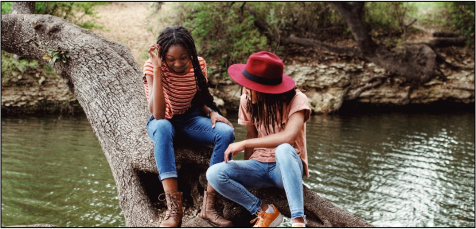Highlights of Our Work on Solutions: Restorative Justice & Other Interventions

Building Foundations of Health and Wellbeing in School: A Study of Restorative Practices and Girls of Color
Under the leadership of Senior Scholar Thalia González, the Center conducted a two-year study funded by the Robert Wood Johnson Foundation. The project examined associations between school-based restorative practices and protective health factors for girls of color. We analyzed data gathered from middle and high school Black and Latina girls across the United States and found that school-based restorative practices improve girls’ Connections to Teachers, Peers, and Family; their Sense of Safety and Positive School Climate; Social-Emotional Skills (SEL); and Mental Health, Resilience, and Empowerment.


School-Based Restorative Justice: State-by-State Analysis
This fact sheet presents the results of our 50-state assessment of School-Based RJ legislative trends. We found that 21 states and the District of Columbia have enacted legislation supporting the use of RJ in schools.
Note: This analysis has a companion piece, a 50-state survey of exclusionary school discipline legislation. View that document here. Taken together, these fact sheets examine how states are limiting the removal of students from classrooms and which states are promoting RJ.

About Our Work on Solutions: Restorative Justice & Other Interventions

Solutions are a critical part of our work. Restorative justice practices (RJ) are one important tool that offers special benefits to girls, helping support them so that they can learn, heal, and thrive. Using restorative practices in school can help strengthen students’ connections to peers and educators, rebuild the relationships essential to educational success and lifelong health, and improve academic performance and social and emotional skill development.
Another important means of improving girls’ health and wellness is to remove police from schools, where their presence has been shown to represent harmful surveillance and criminalization. We have provided roadmaps to accomplish this goal based on fieldwork we completed in jurisdictions that enacted police-free policies.

Because experiencing discrimination creates harm to girls’ mental health and ability to thrive, eliminating biased approaches is a critical, fundamental solution that we focus on. We offer webinars, trainings, and other educational opportunities to raise awareness among those who can make a difference in girls’ lives and provide specific means of overcoming implicit bias.
We also study somatic (body-based) practices as gender-specific interventions that can help address the effects of trauma on girls. We’ve conducted research and analysis and presented recommendations to implement mindfulness and yoga practices to overcome symptoms of trauma, improve self-esteem, and strengthen self-regulation.
Join Our Distribution List
Stay informed about The Center on Gender Justice & Opportunity’s impactful work and upcoming events by signing up for our newsletter.



